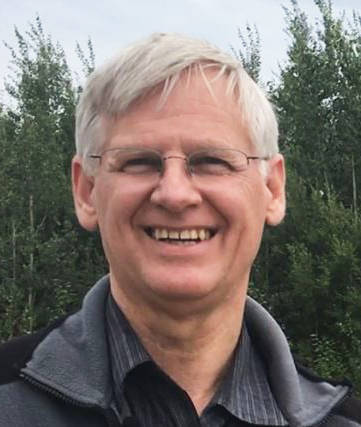By David W. Schade
The battle to legalize industrial hemp in Alaska was won in the halls of Congress and the Alaska State Capitol in Juneau over the past several years. Now, it’s time for all those growing, processing and selling hemp products to protect themselves and their customers by following the laws they fought so hard to pass.
While industrial hemp is an old-time agricultural crop, many still think of cannabis only as marijuana. While both variants are cannabis sativa, recreational cannabis is cultivated to maximize concentration of the tetrahydrocannabinol — THC — that gets users high, and industrial hemp, as defined under federal law, has less than 0.3 percent THC.
While hemp is used to make rope, paper, cloth, fuel or animal fodder, it is now mainly used to produce cannabinoids, such as cannabidiol, better known as CBD, thought to offer medicinal or therapeutic values to humans who consume them. Popular products containing CBD include oils, lotions, soaps, edibles and beverages.
Since 2014 and 2018 federal farm bills authorized states to manage legal hemp industries, hemp has become an important new national crop. Industrial hemp-derived products represent a $5 billion industry today, which industry watch groups project will grow to $25 billion by 2025.
In Alaska, the Legislature in 2018 passed Senate Bill 6, authorizing the Division of Agriculture to establish a pilot program allowing Alaska farmers to grow industrial hemp, and directing the division to draft regulations to guide the new industry. Since the regulations took effect April 4, 2020, six growing operations, four processors and about 100 retail outlets have registered as legal hemp businesses.
Our division is responsible for ensuring Alaska Grown crops are safe for farmers to grow, and for buyers to consume. Our new regulations therefore require testing of both crops and processed products for harmful levels of pesticides, heavy metals, pathogens or other dangerous substances, and to confirm THC concentrations are below 0.3 percent and products are accurately labeled.
Those who may still believe hemp lies outside the law must understand very clearly that any Alaska commercial hemp growers must register with the Division of Agriculture, and any growers of recreational marijuana must register with the Alcohol and Marijuana Control Board.
We have worked pro-actively to educate the public and those in the industrial hemp industry about their obligations under the new law and regulations. Staff have conducted press conferences, held public information meetings, made Facebook posts and videos, and visited with growers and retailers. Despite these efforts, only about 100
of the estimated 1,500 retailers selling hemp-related products to Alaska consumers are properly registered with the state.
While we are eager to support the new hemp industry, we must also enforce laws aimed at protecting Alaskans’ safety. Therefore, we are announcing that retailers who meet their current obligation to file state registration paperwork and pay applicable fees by Dec. 15 will be covered not just for the remainder of 2020, but all of 2021 as well, and will not face registration enforcement actions.
Those who do not meet that deadline, however, are warned that they will become subject to enforcement of state law and regulations. While division inspectors now have the discretion to issue warning notices on unregistered hemp retailers, or to impose civil penalties of $500 per day, that discretion expires — and full enforcement will begin — Jan. 1, 2021. Violations can bring an immediate halt to sales. Repeat violations can bring escalating responses, ranging from removing products from shelves, to permanent confiscation and forfeiture of product without compensation.
Industrial hemp is an exciting new crop for our state and is an industry full of opportunities for those in our growing agriculture sector. Like any businesspeople, however, those in the industrial hemp industry must meet their obligations to be responsible actors. We will be glad to help any hemp grower, processor, or retailer comply with state law to protect the health and well-being of their customers and their business.
• David W. Schade is director of the state Division of Agriculture. A lifelong Alaska farmer raised on a homestead, he holds degrees in agricultural economics and public administration. Columns, My Turns and Letters to the Editor represent the view of the author, not the view of the Juneau Empire. Have something to say? Here’s how to submit a letter to the editor or My Turn.

